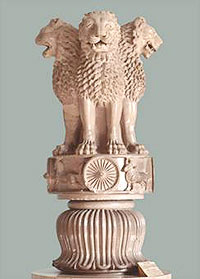 New Delhi, Mar 10: Over 1,000 IAS officers have failed to submit their immovable property returns (IPRs) to the government within the stipulated time frame this year.
New Delhi, Mar 10: Over 1,000 IAS officers have failed to submit their immovable property returns (IPRs) to the government within the stipulated time frame this year.
Of the total of 1,057 officers who did not submit their IPRs for 2012, a highest of 147 are from Uttar Pradesh cadre, 114 of Arunachal Pradesh-Goa-Mizoram-Union Territories (AGMUT), 100 of Manipur-Tripura, 96 of Jammu and Kashmir and 88 of Madhya Pradesh cadre among others, according to Department of Personnel and Training data.
Suspended IAS couple Arvind and Tinoo Joshi of MP cadre are also among the list of erring officials.
Joshis, both 1979 batch officers of Madhya Pradesh cadre, made headlines after Income Tax department raided their residence in February, 2010 and allegedly unearthed assets worth over Rs 350 crore.
58 IAS officers of Karnataka cadre, 53 of Andhra Pradesh, 48 of Punjab, 47 of Orissa, 45 of West Bengal, 40 of Himachal Pradesh, 35 of Haryana, 25 of Jharkhand, 23 of Assam-Meghalaya, 22 of Rajasthan, 20 of Tamil Nadu, 17 of Maharashtra, 16 of Nagaland, 14 of Gujarat, 13 of Bihar, 10 of Kerala, nine each of Uttarakhand and Chhattisgarh and eight of Sikkim cadre have not given their IPRs, it said.
The total sanctioned strength of IAS is 6,217, including 1,339 promotion posts. Of these, 4,737 officers are in position.
An all-India service officer is bound to file property returns of a year by January end of the following year, failing which promotion and empanelment to senior level postings may be denied.
Besides, there are 107 IAS officers who have not submitted their IPRs for 2011. As many as 198 IAS officials did not give their property details for 2010.
"A circular has already been sent to all cadre controlling authorities to inform them about timely submission of their IPRs," said an official of the DoPT, which acts as a nodal agency for administrative matters of the IAS officers.





Comments
Add new comment